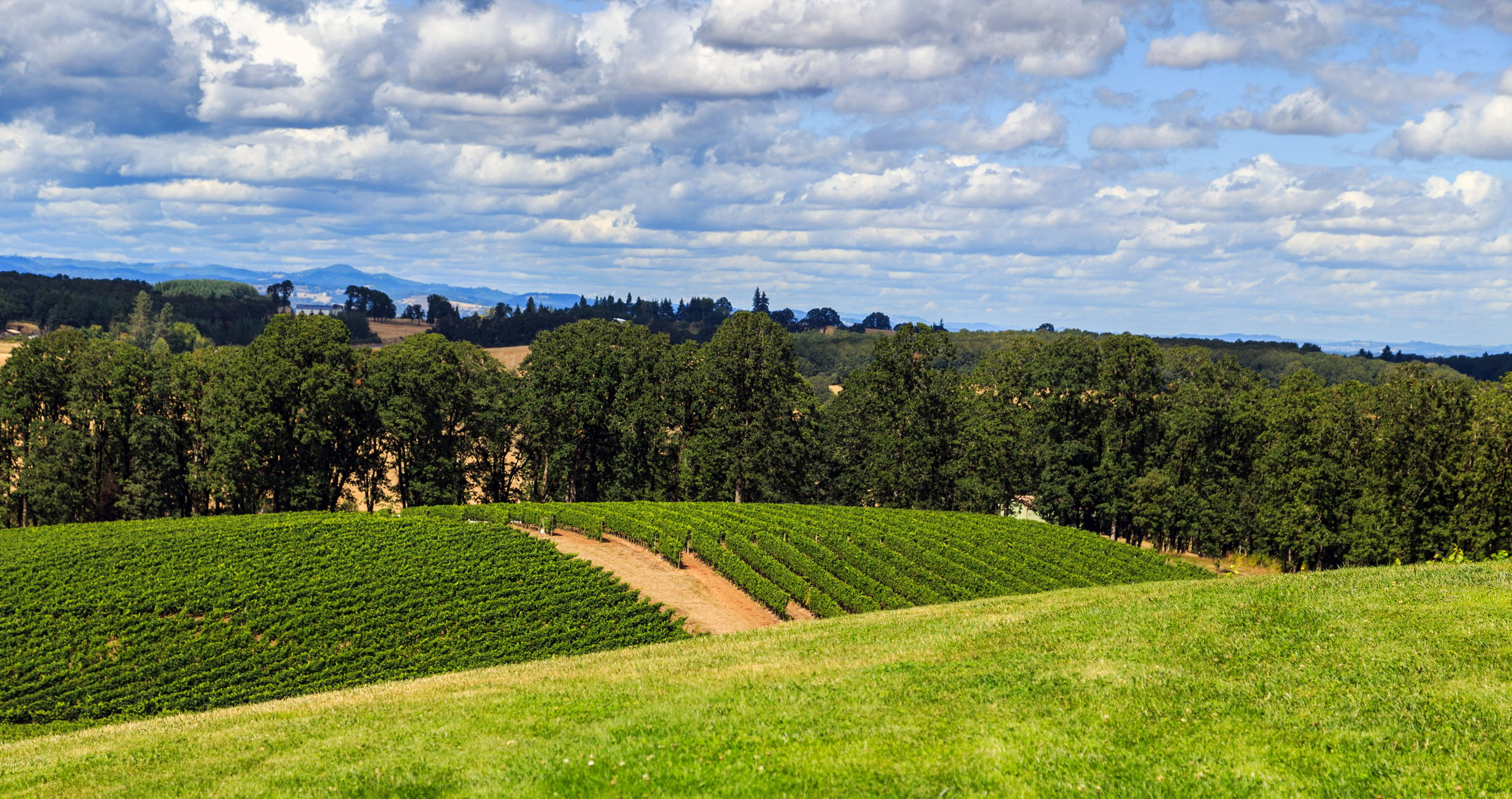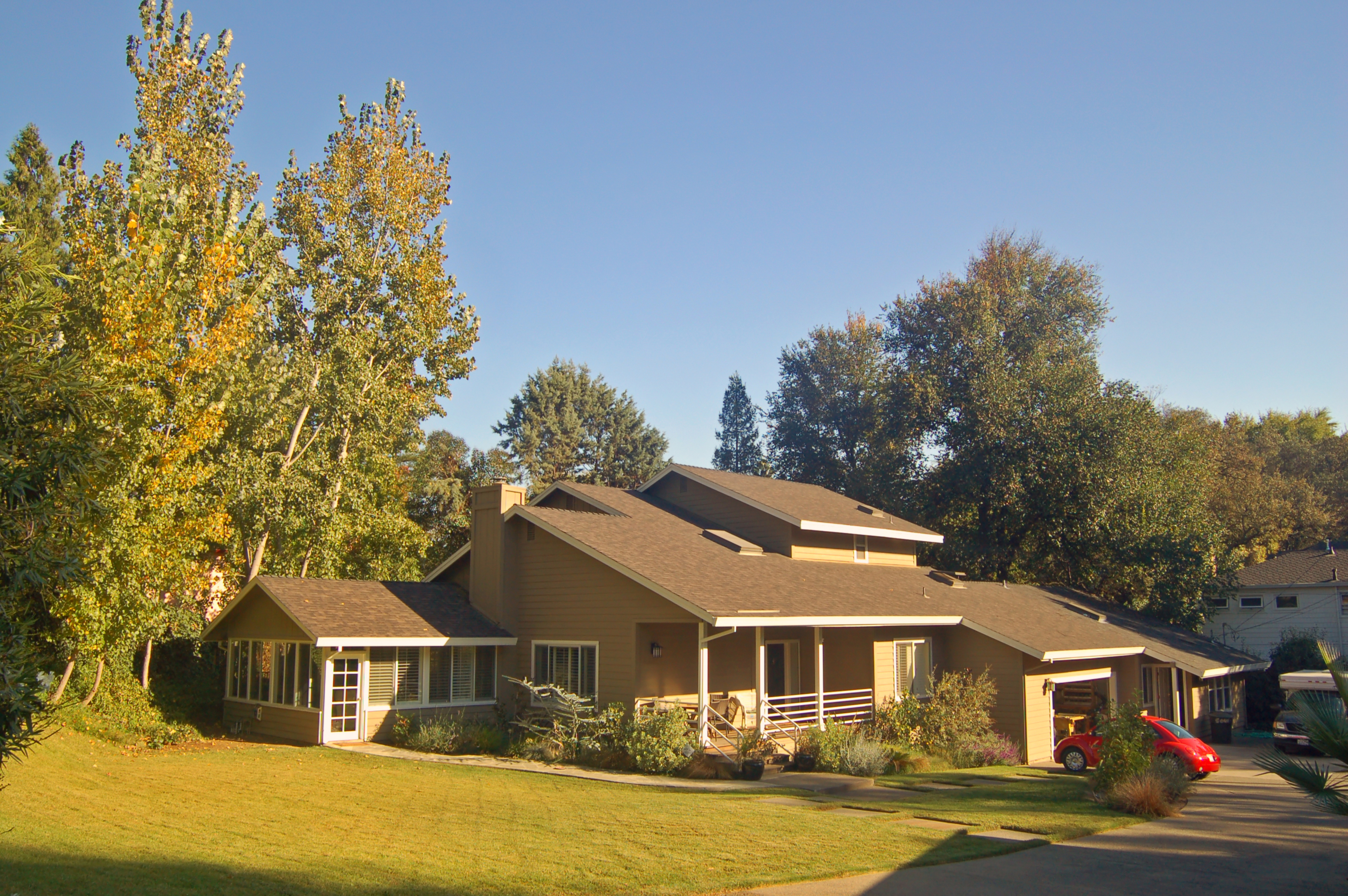Does a Hard Money Loan Appear On My Credit Report?
Many real estate investors new to hard money loans ask, “Does a hard money loan appear on my credit report?” This question comes up several times...
6 min read
 Ted Spradlin
:
Jul 3, 2023 1:05:19 PM
Ted Spradlin
:
Jul 3, 2023 1:05:19 PM

Wineries are unique investments that require significant capital to start and maintain operations. The production process is complex and lengthy, requiring years of investment before any revenue can be generated. Additionally, wineries must consider factors such as land acquisition, vineyard management, equipment purchases, and marketing strategies.
While traditional lenders such as banks may offer loans to wineries, they can often be difficult to obtain due to the specialized nature of the industry. This is where winery hard money loans come into play.
Winery hard money loans are typically offered by hard money and private money lenders that specialize in short-term bridge loan programs. These loans are secured by the value of the winery's assets and often have higher interest rates and fees than traditional loans. However, they offer more flexible loan terms and repayment options.
Without adequate funding, it can be challenging to grow your winery's operations — or even survive in an already competitive industry. Winery hard money loans offer a viable alternative to traditional lending options and should be considered by any winery in need of capital infusion.
If you're a winery owner looking for financing, you may have heard of something called hard money loans. In simple terms, a hard money loan is a type of short-term loan that uses the value of the property being purchased as collateral. Unlike traditional loans, which are based on creditworthiness and income, hard money loans are based solely on the hard asset — real estate — used to secure the loan.
Hard money loans are typically provided by private investors or companies, and carry higher interest rates than traditional loans due to their shorter repayment terms and higher risk. They can be used for many purposes, including real estate investments, fix-and-flip projects, and even winery financing.
In contrast to traditional bank loans, which require extensive paperwork and approval processes that can drag on weeks or months, winery hard money loans offer quick access to funding with minimal documentation requirements. Additionally, because they rely solely on the collateral (in this case, the winery property), they may be accessible to borrowers with less-than-perfect credit or who don't meet traditional lending criteria.
One key difference between traditional bank loans and hard money loans is the repayment term. While traditional bank loans typically offer longer repayment periods (up to 30 years in some cases), hard money lenders often expect repayment within 12-36 months. This means that borrowers must have an exit strategy in place before taking out a hard money loan — usually involving selling their property or refinancing with a long-term loan at some point in the future.

One of the biggest benefits of winery hard money loans is the flexible loan terms and repayment options. While traditional loans often have strict criteria and long repayment schedules, hard money lenders can offer customized terms to fit a borrower's specific needs. Borrowers can negotiate interest rates, loan length, prepayment penalties or guaranteed interest clauses, and payment structures to ensure the loan aligns with their budget and business goals.
Another major advantage of winery hard money loans is that the process moves faster. When wineries need quick funding — such as for purchasing new property or expanding production facilities — they can't afford to wait weeks or months for a traditional bank loan to come through. With a hard money lender, borrowers can often receive funding in as few as 1-2 weeks.
For a borrower with subpar financials, a winery hard money loan can be critical to securing financing. Hard money lenders weigh factors like collateral value of the real estate and business plans more heavily than credit scores and current cash flows.
This opens up opportunities for those with lower revenues to find funding through a hard money lender. Overall, these benefits make winery hard money loans an attractive option for those looking for fast access to flexible private bridge loan financing for their business.
First Capital Trust Deeds (FCTD) has originated short-term hard money bridge loans for investors and winery operators for both purchase and refinance transactions. Below are some examples of the loan scenarios we’ve funded.
An investor used the significant equity position in one of their long-time residential investment properties in Los Angeles as additional collateral to acquire a wine country property with over 50 acres of grapes leased to a winemaker. The $3.2 million bridge loan allowed the buyer to close quickly during a bidding war for the property. The 24-month term gave the buyers time to file their first year’s income tax returns, which accounted for the short-term farmhouse rental and land lease. This enabled them to meet their local bank's requirements for long-term financing on the property.
A small winery in Northern California needed funds to buy out a partner who was moving out of the region. They used a 36-month private money loan secured by the buildings and the farmland to quickly pay out the partner. The two remaining partners' exit strategy was to refinance with their local bank within 6-8 months.
A winemaker in the Willamette Valley subdivided a portion of their farmland to build a housing development of higher-end homes, with enhanced value due to the proximity to a winery. They refinanced the winery and land with their bank and used a hard money construction loan to fund the infrastructure for utilities, services and roads before selling finished lots to home builders.
A winemaker who wanted to build a new production building used a hard money second mortgage for the construction rather than a low-rate 7-year fixed-rate mortgage in first position offered by their bank. The borrowers chose hard money in order to close within two weeks. By comparison, their bank was at that time taking 2-3 months to underwrite loans. The new building needed to be ready before harvest, and the bank timeline would take too long. Hard money, even with higher costs, proved the best option for breaking ground on the new building.
Cannabis and wine is a combination we’ve seen more and more over the past few years. Cannabis properties are mostly financed by state-chartered banks, or hard money and private money lenders. Institutional lenders aren't allowed to lend to a cannabis property, so this combination becomes more difficult to finance.
A wine and cannabis grower secured 15-year financing against their property. It closed in about 35 days due to the appraisal, lender site visit, licensing verifications, and extra underwriting required in cannabis financing.

To qualify for a winery hard money loan, lenders typically consider factors such as the borrower's credit score, income, assets and overall financial history. However, while traditional loans rely heavily on these criteria, hard money lenders focus on the value of the collateral securing the loan.
For wineries, this collateral consists of their property, including building and land value. While credit scores and financial history carry some importance, they're not always deal breakers in securing a hard money loan.
A critical factor in obtaining a winery hard money loan is providing a well-developed business plan and strong financial statements. Lenders will require documentation such as balance sheets and cash flow statements to show revenue streams and overall profitability. Detailed projections for future revenue growth are also crucial to demonstrate your ability to repay the loan.
While winery hard money bridge loans can offer many benefits to wineries, they also come with risks. In this section, we'll explore some of the potential drawbacks of using a hard money loan to finance your winery.
One of the biggest risks associated with winery hard money loans is the higher interest rates and fees that often come with them. Because these loans are typically considered higher risk by lenders, they often charge higher interest rates to offset that risk.
While a hard money loan may provide quicker access to funds, you'll want to make sure that you're not overpaying in interest or fees.
If you're unable to service the debt or can't pay off the balloon payment at maturity, you may be at risk of default. While traditional loan services are protected by uniform loss mitigation legislation, hard money lenders doing business purpose loans lack those protections. However, that doesn’t mean that hard money lenders like to foreclose on properties. A lender with a background in real estate or banking doesn't want to step into the role of winemaker.
(FCTD regularly works with a lender who financed a funeral home and cemetery. The borrower foreclosed on the loan, forcing the lender to get a funeral director’s license to keep the business running until they could sell the property.)
For this reason, a hard money lender will verify your exit strategy to ensure your real estate isn't over-leveraged, allowing you plenty of protective equity to qualify for bank financing.
Winery hard money loans can be a valuable source of financing for wineries to grow or expand their operations. With flexible loan terms and quick access to funds, they're an attractive option for those with immediate needs, or with circumstances unsuited to bank financing. However, they also come with higher interest rates and fees, as well as potential consequences for defaulting on the loan. Therefore, it's important to make sure the loan term aligns with your most likely exit strategy.
In addition to a solid exit strategy, it's essential to have a business plan and financial statements ready to help lenders evaluate your application and determine your funding eligibility.
In the end, whether you decide to pursue a winery hard money loan or not will depend on your unique situation. But by considering all of the factors involved — including benefits, risks and choosing the right funding source — you'll be better equipped to make an informed decision that best meets your needs.

Many real estate investors new to hard money loans ask, “Does a hard money loan appear on my credit report?” This question comes up several times...

Every week, FCTD receives inquiries from people who are not good matches for hard money loans. It's important to remember that hard money loans are...

A business purpose hard money second mortgage is a type of loan issued by nonbank private lenders, including individual trust deed investors, family...